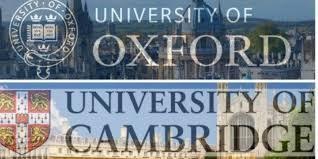
5 minute read
GLOSSARY OF USEFUL TERMS
In order to understand successfully the world of university applications, you will be advised to master a new vocabulary. The terms below should prove useful:
Admissions Tutor/Officer
These individuals are best contacted if you need help or advice about admission to a particular university.
Admissions Tests
Used by some universities as additional information on which to make offers and are usually required for courses in Law, Medicine, Veterinary Medicine, Dentistry and also various courses at Oxford. The tests are BMAT, UCAT, LNAT, HAT and TSA (see the section entitled “Interviews & Admissions Tests” for further details).
Apply Extra
This is the pre-clearing process introduced by UCAS. It enables students who do not hold any offers (either because all 5 applications were unsuccessful, or because they rejected offers that were made) to submit their application to further university degree courses (one at a time) for consideration, before the main clearing process in August of Year 13. Apply Extra is available to students from the end of February to the end of June in Year 13.
Art Foundation Degree
A course lasting one year that is usually required before students are eligible to pursue an undergraduate course in Art.
Campus
A campus is a site on which a university is located. It tends to describe a university whose buildings are clustered in one place rather than scattered throughout a city or town. Exeter University, for example, is a campus university; Leeds University is city based.
Collegiate System
A university made up of separate colleges. In such universities, the college plays a crucial part in the lives of students. The only true collegiate universities in the UK are Oxford, Cambridge and Durham, although Lancaster University is made up of nine different colleges which are run as a collegiate system.
Clearing
The process (run by UCAS) which begins as soon as the A Level results are released in August. It is there to assist students who have missed required grades, or who hold no offers, to find university courses which still have places available.
Combined/Joint Honours Degrees
These are degrees where usually two subjects are studied (e.g. “History and Politics” or “Business Studies and French”).
Deferred Entry
This allows students who are taking a gap year to apply with their peers, but delay the start date by one year. Universities have different views on this and advice should be sought directly from those in which you are interested.
Degree Grades
Most UK undergraduates will emerge typically after 3 or 4 years with a Bachelor of Arts (BA) or a Bachelor of Science (BSc) degree. These can be classified thus, from best to worse:
• A First • An Upper Second: 2:1 • A Lower Second: 2:2 • A Third • A Pass
Fresher
A term deriving from the American for a student in her/his first year at university.
Gap Year
Name given to the decision some students take to defer their university start date until one year after they leave school. There are many opportunities available for students and Gap Years need to be carefully planned (see the section entitled “Gap Years” for further details).
Interviews
Some universities will not make offers until interviews have occurred, usually only for heavily oversubscribed courses.
Matriculation
This is the process of officially enrolling and starting at university, sometimes marked by a photograph and/or dinner.
Modular courses
These allow students to spread their assessments over their course, rather than taking all their examinations (‘finals’) in one sitting. University modules cannot generally be re-taken.
Open Days
These are organised by universities as a means by which prospective students can gain an insight into a particular university. There are a range of Open Days available to students, ranging from university-wide to departmental. They usually take place in June/July & September/October, but are now increasingly being evenly spread throughout the year, and information on specific Open Days can be sought at www.opendays.com
Personal Statement
This is the most time-consuming aspect of any university application, where the student has approximately 600 words (4000 characters with spaces) to ‘promote herself/himself to the universities (see the section entitled “Personal Statements” for further details). Please be aware that universities are likely to check such statements for plagiarism and have declined making offers, if plagiarism is discovered. The validity of the personal statement is the responsibility of the applicant.
Pre-University Taster Courses
Organised by individual (or cluster groups of) universities, these afford students the opportunity to participate in subject-specific courses. These typically are of one day’s duration and can be useful in helping to gauge one’s respective suitability and interest in such a course.
These universities were built in the 19th century and the first half of the 20th century. Broadly speaking they are all the so-called “modern universities” e.g. Manchester, Liverpool, Birmingham and Reading.
Russell Group of Universities
This group is considered by some to be like the US ‘Ivy League’ of the most prestigious universities in the United Kingdom. There are twenty-four universities in the group but they do not necessarily make the ‘Top 20’ as ranked annually by either The Times or The Guardian newspapers (see the section entitled “Universities” for further details), so do not neglect looking at others outside this list.
Sandwich Courses
These courses integrate academic studies with industrial, commercial or professional training. For example, it may involve two years of study, followed by a year in work and then a further year on the course (2:1:1). Alternatively, with sponsorship, students may follow a 1:3:1 sandwich, with a year in industry either side of their university degree. Usually these courses are offered in the fields of Engineering, Science, Business and Modern Languages.
SATs and ACTs
These stand for Scholastic Assessment Tests and American College Tests respectively. These are required for any student who wishes to study at an American university, with an institute requiring one of these two to be taken.
UCAS
The Universities and Colleges Admissions Service is the central body (based in Cheltenham) through which all students must apply to gain access to a British university.
UCAS Apply
This is the computer-based application package that allows students to submit their UCAS forms on-line. It is available for students to commence their applications from September of Year 13.
UCAS Tariff
These were introduced in 2002 to recognise the value of additional qualifications (e.g. ABRSM examinations (Music)) in the university applications process. Many universities use this system where offers are made on the basis of points, not just A Level grades. Please note that the tariff was radically changed fairly recently. More details are provided later under the sub-section entitled “Choosing Your Course”.








